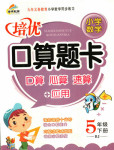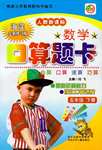题目内容
7.Are morning people born or made?In my case it was definitely made.In my early 20s,I rarely went to bed before midnight,and I would almost always get up late the next morning.But after a while I couldn't ignore the high relationship between success and rising early.On those rare occasions where I did get up early,I noticed that my productivity was almost always higher.So I set out to become a habitual early riser.But whenever my alarm went off,my first thought was always to stop that noise and go back to sleep.Eventually some sleep research showed me that I was using the wrong strategy.
The most common wrong strategy is this:You assume that if you're going to get up earlier,you'd better go to bed earlier.It sounds very reasonable,but will usually fail.
There are two main schools(流派) of thought on sleep patterns.The first is that you should go to bed and get up at the same time every day.The second school says you should go to bed when you're tired and get up when you naturally wake up.However,I have found both of them are wrong if you care about productivity.If you sleep at set hours,you'll sometimes go to bed when you aren't sleepy enough.You're wasting time lying in bed awake and not being asleep.
If your sleep is based on what your body tells you,you'll probably be sleeping more than you need.Also,your mornings may be less predictable if you're getting up at different times.
The solution for me has been to combine both methods.I go to bed when I'm sleepy and get up with an alarm clock at a fixed time.So I always get up at the same time (in my case 5am),but I go to bed at different times every night-sometimes at 9:30pm,and other times at midnight.Most of the time I go to bed between 10-11pm.
However,going to bed only when I'm sleepy,and getting up at a fixed time every morning is my way.If you want to become an early riser,you can try your own.
59.According to the passage,the underlined phrase refers toC.
A.people who stay up until the next morning
B.people who feel sleepy in the morning
C.people who get up early in the morning
D.people whose productivity is the highest in the morning
60.Why did the author want to become a habitual early riser?C
A.Because he/she wanted to form the habit of going to bed early and getting up early.
B.Because he/she wanted to see which of the two main schools of thought on sleep patterns was right.
C.Because he/she had found that his/her productivity was higher when he/she got up early.
D.Because he/she was told the high relationship between success and rising early.
61.The author experienced all the following EXCEPTA.
A.asking scholars for advice on sleeping habits
B.getting up early occasionally
C.pressing off the alarm to go on sleeping
D.going to bed after midnight
62.The passage is mainly aboutB.
A.how to have good sleep
B.how to become an early riser
C.wrong strategies for getting up early
D.main schools of thought on sleep patterns.
分析 本文属于说明文阅读,作者通过这篇文章主要向我们描述了对睡眠是先天还是后天形成的探究,作者通过后天的改变培养了自己的早起习惯,我在固定的时间睡觉和早起,形成固定的生物钟,养成早起的习惯.
解答 59.C.推理判断题.根据第二段的内容并结合该段的"On those rare occasions where I did get up early,I noticed that my productivity (效率) was always higher.So I set out to become a habitual early riser."可知morning people是指那些早起的人,故选C.
60.C.细节理解题.根据第二段的"On those rare occasions where I did get up early,I noticed that my productivity (效率) was always higher.So I set out to become a habitual early riser."可知我偶尔早起了几次,却发现我的效率总是很高,因此我决定成为早起的人,故选C.
61.A.细节理解题.根据第一段"In my early 20s,I hardly went to bed before midnight,"和第二段的"On those rare occasions where I did get up early"以及"whenever my alarm went off,my first thought was always to stop that noise and go back to sleep."可知ACD三项内容都是文章中提及的,只有B项文中没有提到,故选A.
62.B.主旨大意题.纵观全文可知本文讲述的是我如何努力成为一个早起者以及最后的结果,B项表述概括全面,故选B.
点评 考察学生的细节理解和推理判断能力,做细节理解题时一定要找到文章中的原句,和题干进行比较,再做出正确的选择.在做推理判断题不要以个人的主观想象代替文章的事实,要根据文章事实进行合乎逻辑的推理判断.

 培优口算题卡系列答案
培优口算题卡系列答案 开心口算题卡系列答案
开心口算题卡系列答案 口算题卡河北少年儿童出版社系列答案
口算题卡河北少年儿童出版社系列答案That evening,the(14)B husband arrived home and was surprised to see a beautiful table set with their best china and(15)C candles.Smelling the aroma (香味) of the wonderful meal,
he(16)C that someone from the office had called his wife and tipped her off (透露消息).
Finding her in the kitchen,he eagerly(17)A the details of his good news.When they sat down to the meal,next to his plate he found a note that read:''Congratulations,darling.I knew you'd get the(18)C.This dinner is to show you how much I love you.''
After dinner,on his way to the(19)Cto help his wife serve dessert,he noticed a second card had slipped out of his wife's pocket.Picking it up,he read:''Don't worry about not getting the raise.You(20)D it anyway.This dinner is to show how much I love you."
| 11.A.school | B.work | C.home | D.dinner |
| 12.A.nervous | B.relaxed | C.curious | D.dangerous |
| 13.A.anger | B.disappointment | C.sorrow | D.delight |
| 14.A.careful | B.cheerful | C.helpful | D.wonderful |
| 15.A.deserted | B.burned | C.lighted | D.used |
| 16.A.heard | B.found | C.guessed | D.forgot |
| 17.A.shared | B.told | C.knew | D.talked |
| 18.A.position | B.note | C.raise | D.news |
| 19.A.office | B.living-room | C.kitchen | D.study |
| 20.A.donate | B.devote | C.demand | D.deserve |
| A. | at which | B. | for which | C. | in which | D. | with which |
| A. | so | B. | such | C. | too | D. | enough |
| A. | which | B. | with which | C. | of which | D. | that |
| A. | when | B. | which | C. | where | D. | as |
| A. | appreciate | B. | remove | C. | offer | D. | Afford |
---_____________ It has my name on it.( )
| A. | Here you are! | B. | How do you find it? | ||
| C. | It's hard to say | D. | You must be joking! |